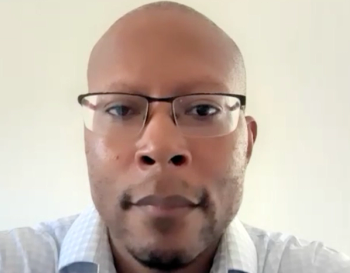
Tycel Phillips, MD, highlighted the need for new therapies for patients with MCL who have experienced relapse on previous lines of treatment.

Your AI-Trained Oncology Knowledge Connection!


Tycel Phillips, MD, highlighted the need for new therapies for patients with MCL who have experienced relapse on previous lines of treatment.

Tycel Phillips, MD, spoke about the impact the glofitamab CRL had on the landscape of bispecifics in lymphoma.
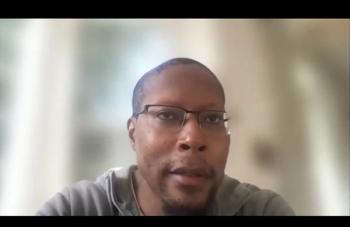
Acalabrutinib improves efficacy in high-risk patients like those with TP53 mutations, those with complex cytogenetics, and those with high proliferative rates in MCL.

Tycel Phillips, MD, questioned how the regimen of acalabrutinib, bendamustine, and rituximab would compare with taking the drugs separately in mantle cell lymphoma.

“Some of the early data that came out of the [ECHO] trial that led to this approval does suggest that it may be beneficial in some high-risk patients,” Tycel Phillips, MD, said.
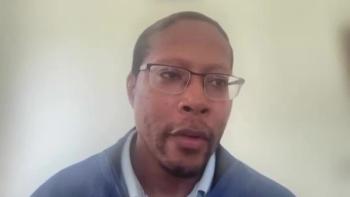
The approval for epcoritamab in patients with R/R follicular lymphoma was supported by encouraging efficacy findings from the phase 1/2 EPCORE NHL-1 trial.

Bispecific antibodies including epcoritamab have “a lot of potential for upward mobility” in lymphoma, according to Tycel Phillips, MD.
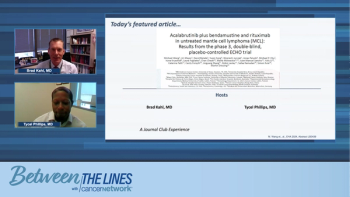
Medical experts evaluate unmet needs, key insights from the Phase 3 ECHO trial, and potential obstacles in integrating the findings into existing treatment protocols.

Medical experts analyze and provide insights on safety findings from the Phase 3 ECHO trial, offering their professional interpretations of the data.
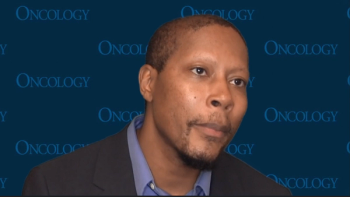
All patient populations benefitted from glofitamab in a phase 1/2 trial, but the design excluded capture of high-risk features present in similar studies.

The panelists evaluate the preliminary efficacy findings from the ECHO trial and address how the COVID-19 pandemic influenced overall survival outcomes in the study.

Key opinion leaders examine the current frontline treatment options for mantle cell lymphoma while identifying critical unmet patient needs requiring attention.
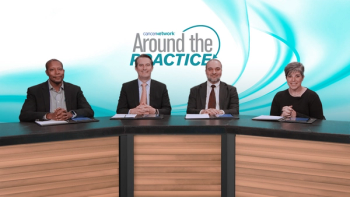
Panelists close the discussion by offering insights and future perspectives on the treatment landscape for follicular lymphoma.

An expert discussion surrounding the evolving treatment landscape for relapsed or refractory follicular lymphoma in the third-line setting and beyond.

Faculty review potential adverse events (AEs) seen in patients receiving treatment with bispecific antibodies and discuss preferred strategies for AE management.

Expert oncologists offer considerations for the use of CAR-T therapy and bispecific antibodies in follicular lymphoma and discuss potential challenges that may limit the use of these agents in clinical practice.

An overview of the evolving role of CAR-T therapy in patients with relapsed or refractory follicular lymphoma.

Panelists review the previously presented patient case and discuss alternative treatment strategies in early disease progression with expert insight on preferred treatment approaches for this setting.

Expert oncologists discuss best practices surrounding treatment follow-up and monitoring for patients with relapsed or refractory follicular lymphoma.

Faculty highlight recent changes in treatment guidelines surrounding the use of PI3K inhibitors in follicular lymphoma and discuss the evolving role of these agents in the treatment landscape.

Hematologist/oncologists describe the rationale for treatment approaches targeting EZH2 and discuss recent guideline updates surrounding the role of tazemetostat and EZH2 testing in patients with follicular lymphoma.

Experts review data updates from the AUGMENT trial and discuss potential clinical implications of these study findings.

An overview of available treatment options for relapsed or refractory follicular lymphoma and with considerations for treatment selection and expert insight on preferred treatment approaches in the second-line setting.

A panel of experts present that case of a 65-year-old woman with follicular lymphoma and discuss potential approaches for treatment in the relapsed or refractory setting.

Expert oncologists discuss the evolving treatment landscape for follicular lymphoma and highlight key advances that have contributed to improved treatment options.
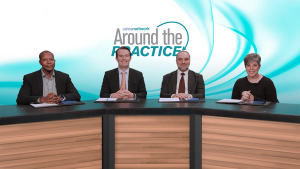
Published: September 30th 2023 | Updated:

Published: November 11th 2023 | Updated:

Published: October 28th 2023 | Updated:

Published: October 28th 2023 | Updated:

Published: October 21st 2023 | Updated:

Published: September 30th 2023 | Updated: